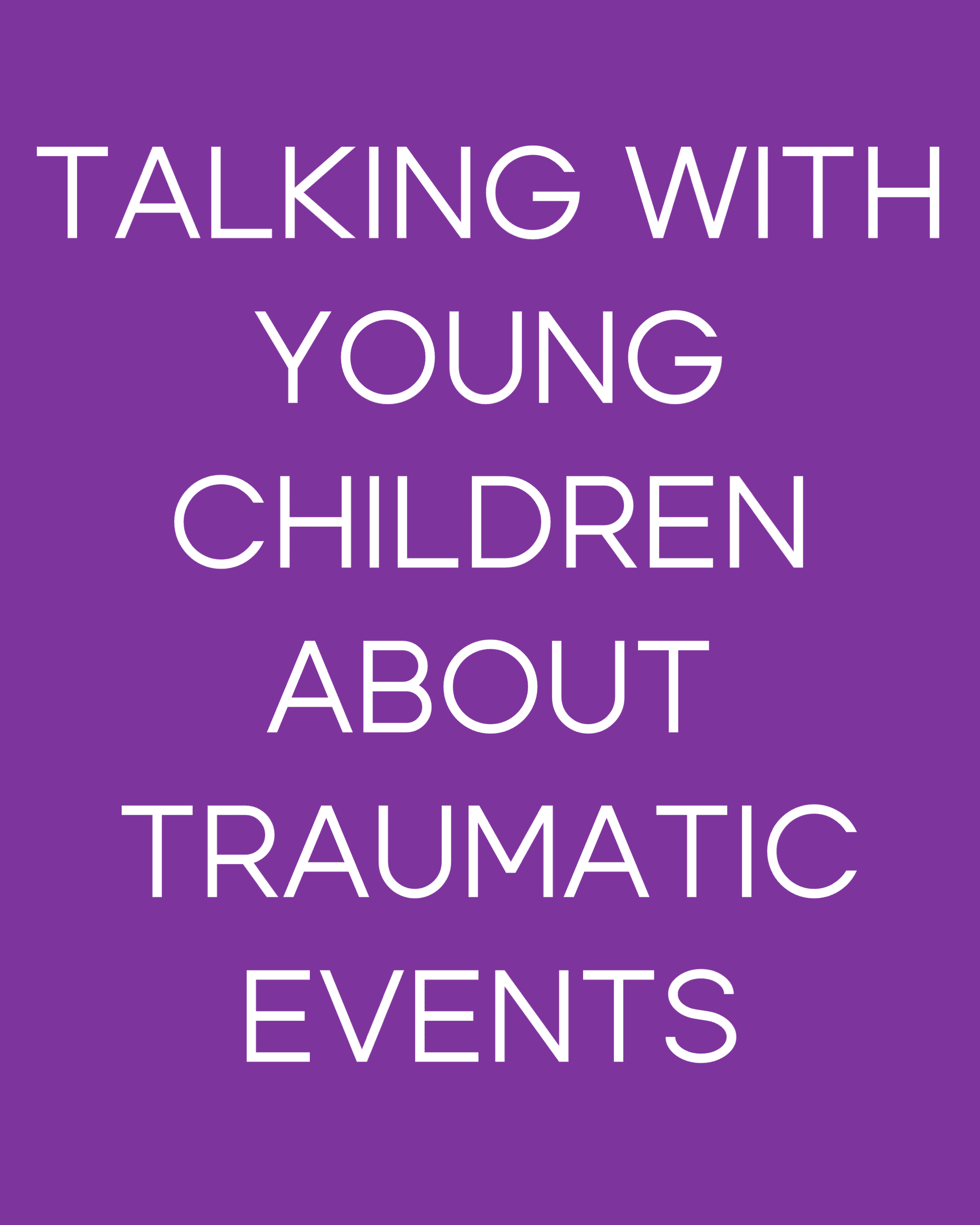Talking With Young Children About Traumatic Events
Rebecca Moore | Posted on |


When we have our children talk to Woof Woof, the imaginary shadow character, all sorts of topics can come up, maybe even a traumatic event, especially since we have been hearing about so many recently. Most of us have been shaken, enraged, saddened and anxious after the recent school shooting in Texas. We all have different reactions to such tragic news which can include needing to talk about it, constantly watching and reading the news and being emotionally overwhelmed. You may be wondering, “Should I speak to my young child about traumatic events and how would I do that?” The answer to that depends on whether a young child has or has not experienced a traumatic event. No matter the situation children do best when they have a trusted and dependable adult they can turn to for help and support when they are stressed, frightened or overwhelmed. A helpful resource is the National Child Traumatic Stress Network- www.nctsn.com
I’ll share some thoughts and recommendations below for children who have directly experienced trauma and those who have not.
When young children have directly experienced a trauma, it is important that:
1. Adults acknowledge what happened.
2. Adults acknowledge feelings that children may have because of the trauma.
3. Adults can say, “You might have questions about what happened, and you can ask me those.”
4. If a child asks a question that seems too difficult to answer the response can be, “That is an important question. I want to think some more about it before I answer it. What do you think?”
5. Adults re-assure children they will keep them safe.
When young children have not been directly or indirectly impacted by a traumatic event, it is important that:
1. Adults protect them from watching the news or from hearing adult conversations about the event.
2. Adults have space to process their emotions about the event with friends and family members so they can be present when they are with their children. If this is too difficult and children notice adult’s upset one can say, “I am sad and upset because of sad things that happened to some families.”
3. Adults stay connected with their child’s teacher to know if the events have been mentioned by other children in school.
4. Children have lots of opportunities to ask questions.
Children need to know their thoughts and questions are meaningful and that when they express their thoughts or questions, someone is listening and interested in what they have to say-no matter how difficult the topic may be.
Written by Nancy Close, PhD, Yale Child Psychologist
